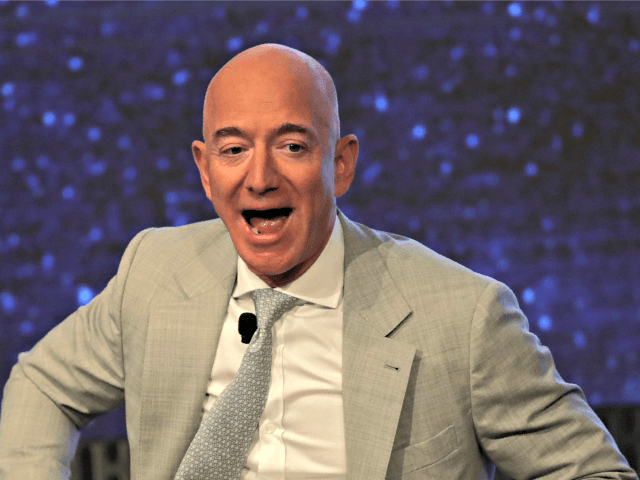A recent investigation from ProPublica reveals that while brands have previously been able to bid for the top slot in Amazon’s search listings, the e-commerce giant has begun using the position for its own private-label items, raising antitrust concerns.
A recent report from ProPublica titled “Amazon’s New Competitive Advantage: Putting Its Own Products First,” claims that while previously Amazon sellers could bid to have their items placed in the premier slot at the top left of Amazon’s listings, during the Wuhan coronavirus pandemic Amazon has begun to position its own private-label items in this slot raising antitrust concerns.
ProPublica spoke with sellers affected by this, writing in its report:
One of consultant Jason Boyce’s clients, a seller of natural supplements, often sought to outbid competitors for the best spots by promising Amazon about $6 each time someone clicked on the product. While the brand never attained the top left slot, it regularly landed in the top row. But in late March, Boyce noticed that Amazon’s own brand, Solimo, had taken over the top left, while his client’s product had been bumped to a lower row. Then Boyce typed “ground coffee” in the search bar, only to find AmazonFresh Colombia ground coffee in the top left, pushing down another client.
“This is madness,” Boyce said. “They’re putting their own product right in the front of the line.”
Tim Hughes, a consultant who used to work in product management at Amazon, commented that Amazon’s new approach violates the company’s mantra that every decision must put the customer first. Hughes, who is now the chief operating officer of a firm that helps brands manage Amazon accounts, commented: “Why would their brand be a better option for consumers? It doesn’t necessarily have to be cheaper, or better, or anything. So then what’s their justification to say, ‘We’re just going to put this up in front of everybody else’? This is just another example of Amazon being able to manipulate the platform for its own good use.”
Many have noted that this move by Amazon may actually violate antitrust laws with ProPublica writing:
Amazon’s dedicating of prime positions to its own brands could be viewed under U.S. law as “exclusionary conduct” — which, along with proving a company has substantial market power, is a key element of antitrust cases, said Christopher Sagers, a professor of antitrust law at Cleveland State University in Ohio.
“If I were their lawyer, this would definitely make me nervous,” Sagers said. “It’s hard to explain the search results finagling as anything besides a nasty, anticompetitive move.”
Dan Brownsher, the CEO of an agency that advises sellers on Amazon, commented that sales of Amazon’s private-label products are likely to increase even on products that currently aren’t popular as a result of the change. According to Brownsher, while Amazon may be forgoing advertising revenue in the short term it’s “going to win in the long term,” as a result of increased private-label sales.
Read more at ProPublica here.
Lucas Nolan is a reporter for Breitbart News covering issues of free speech and online censorship. Follow him on Twitter @LucasNolan or contact via secure email at the address lucasnolan@protonmail.com

COMMENTS
Please let us know if you're having issues with commenting.